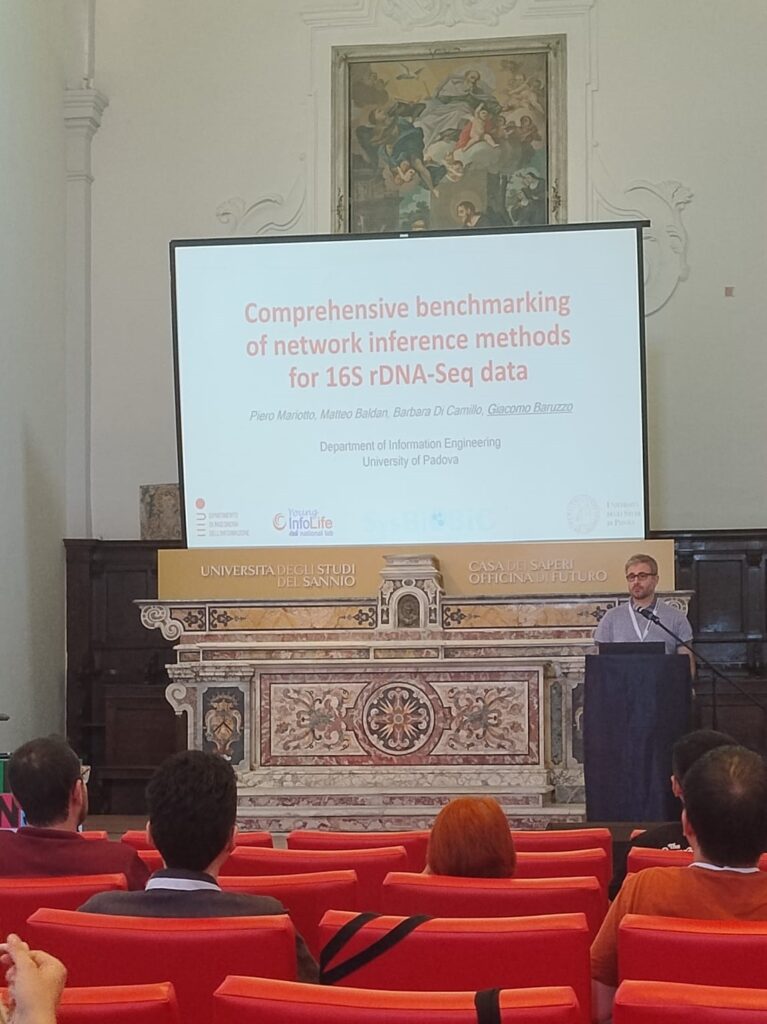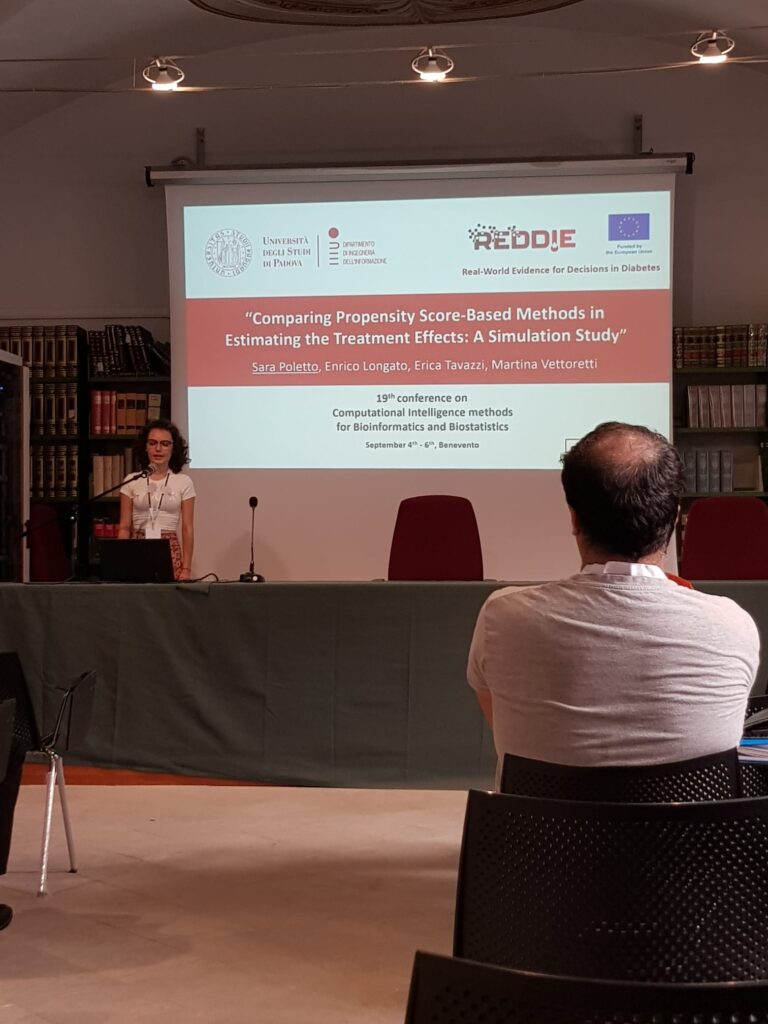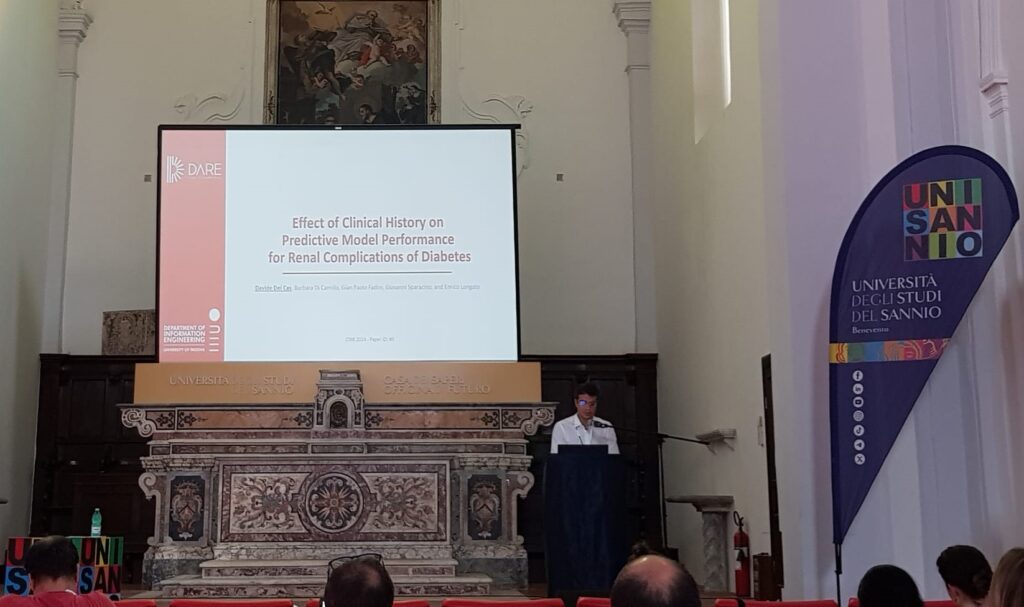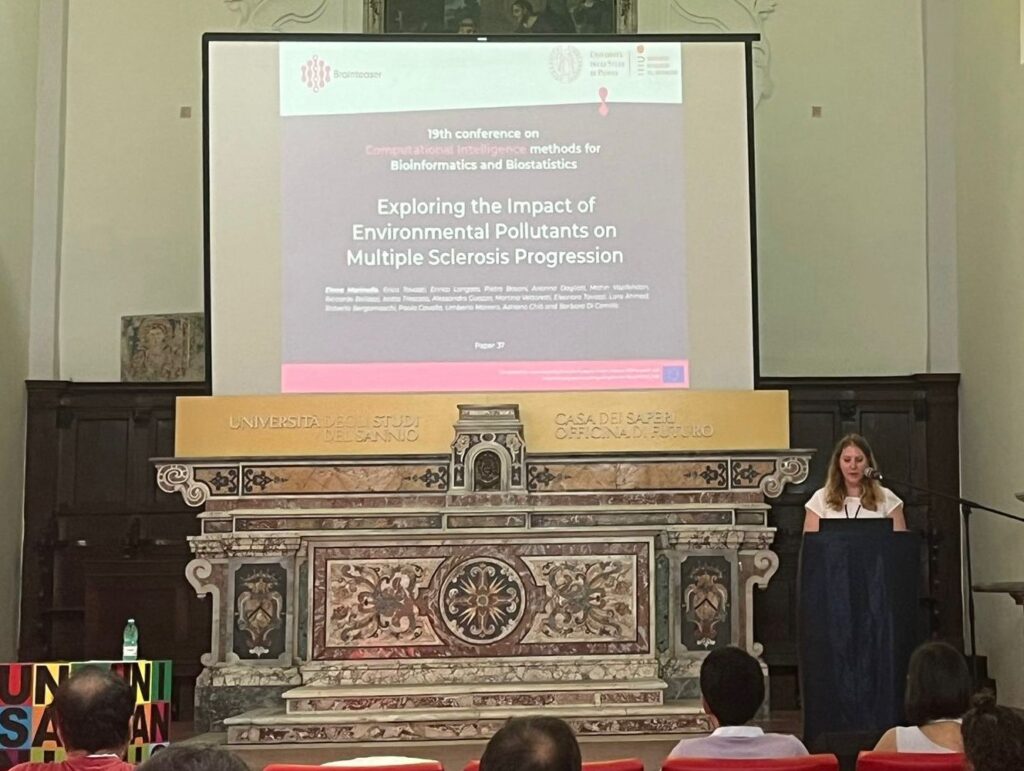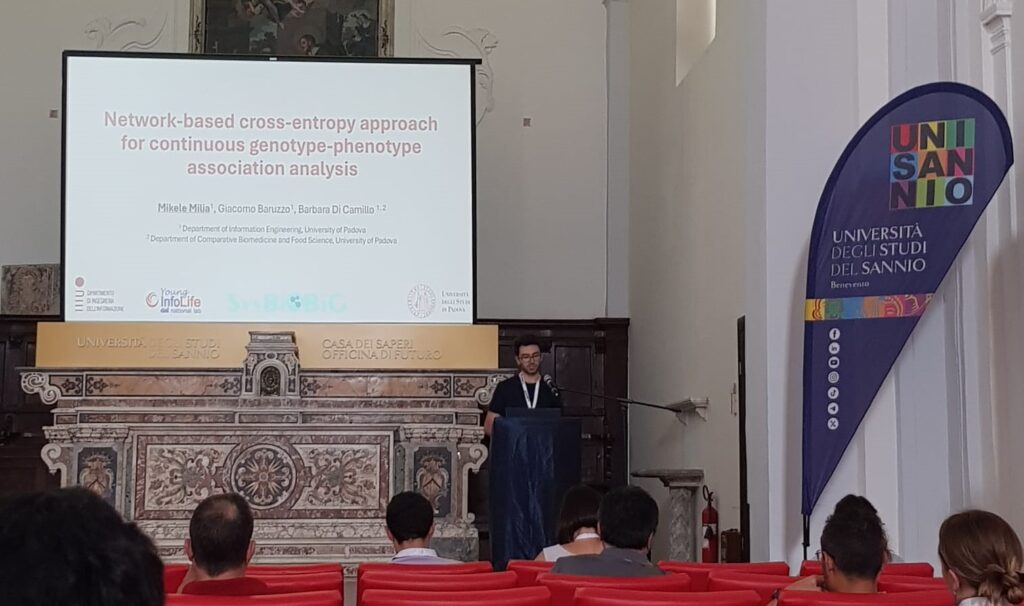BRAINTEASER Research Highlighted at LOD2024
Last week, our post-doc Alessandro Guazzo attended the 10th International Conference on Machine Learning, Optimization, and Data Science held in Castiglione della Pescaia, Italy.
Alessandro gave a presentation on his work “Predicting Multiple Sclerosis Worsening Using Stratification-Based and Time-Dependent Variables Extracted from Routine Visits Data” developed within the BRAINTEASER project, focusing on improving the prediction of multiple sclerosis worsening. His talk highlighted innovative stratification-based variable extraction approaches, which he had the opportunity to study during his recent visit to Carnegie Mellon University.
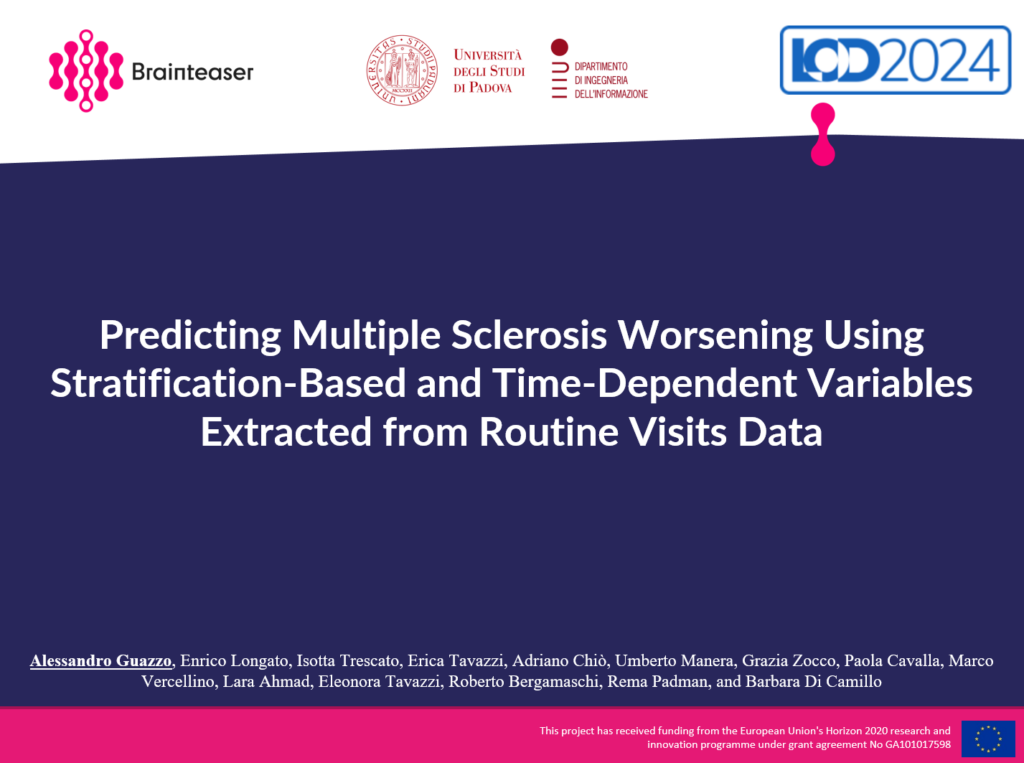
Participation in the Brain Innovation Days 2024 in Brussels
The 4th edition of the Brain Innovation Days, organised by the European Brain Council, will take place on 13-14 November 2024 in Brussels, Belgium, under the overarching theme “Navigating the Brain Across a Lifetime“.
This event aims to bring the wider brain ecosystem together to foster dialogue, exchange knowledge, accelerate investment in research & innovation, and facilitate business development.
The main theme will revolve around 5 subthemes:
🧠 Blossoming Brains: Early Brain Development
🏫 Building Brains: Schools and Workplaces
🏥 Timeless Brains: Nurturing Resilience, Embracing Change
⚙️ Holistic Brains: Strategies for Brain Health in a Dynamic Society
🚀 Advancements in Neurotechnology: Pioneering Innovations
The programme will include a wide array of session types, including plenary sessions, inspiring Brain Talks, Poster and Innovation Showcase, matchmaking and networking activities, the Brain Innovation Days Pitch Competition, breakout sessions, panels, and how-to sessions.
Our PI Prof. Barbara Di Camillo will take part in the “Harnessing AI for brain health: lab to market to society” panel, an event that marks the conclusion of the BRAINTEASER project, celebrating its advances in remote prediction, prevention, and care for people with multiple sclerosis (MS) and amyotrophic lateral sclerosis (ALS). Key sessions will cover the transition of BRAINTEASER’s technology (an app and wearables) from the lab to the market, and the potential impact on patient-centred care. There will also be a showcase of the project’s clinical app and insights on its application to other neurodegenerative diseases like Parkinson’s.
The Brain Innovation Days offer an exciting opportunity to engage with the latest innovations in brain health, and we are proud to see Prof. Di Camillo contribute to the discussion on AI’s role in advancing care from lab to market, reinforcing our commitment to impactful, patient-centred research.
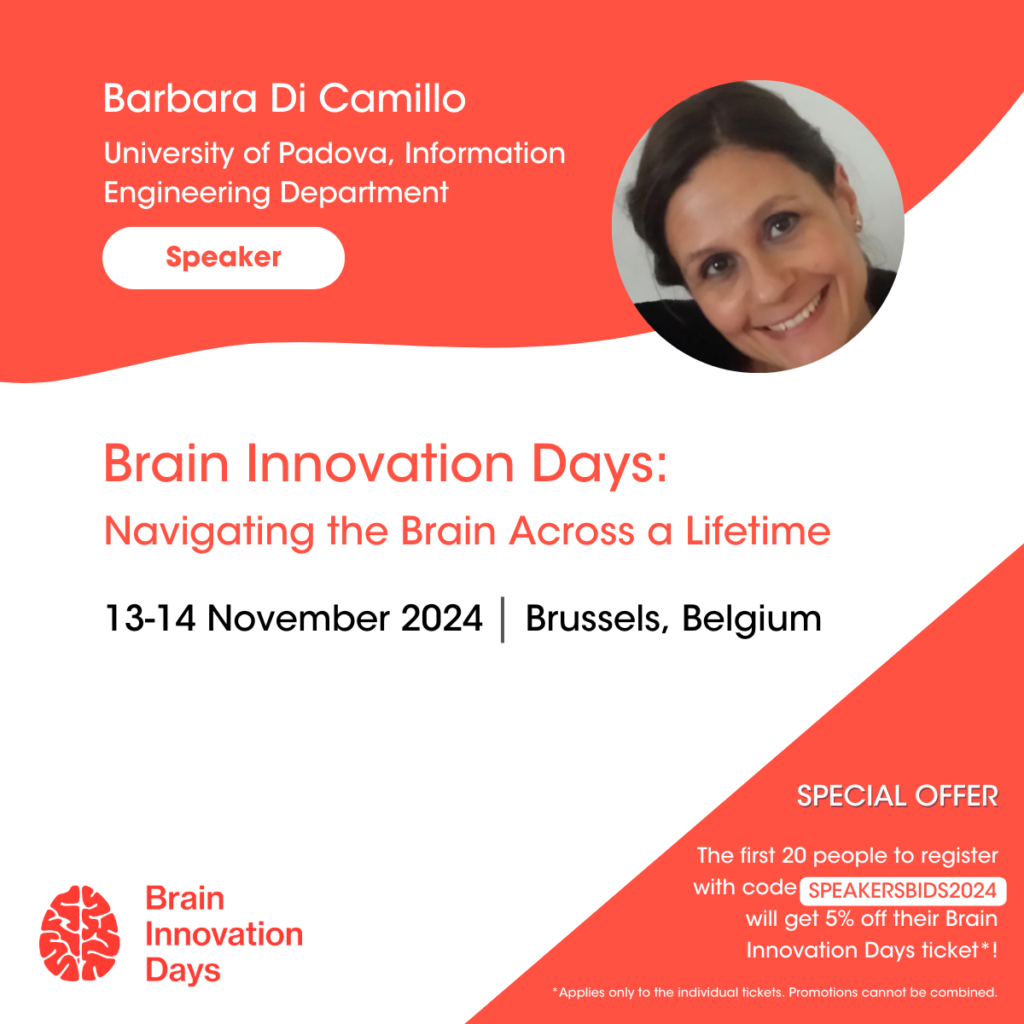
Birolo G, Bosoni P, Faggioli G, Aidos H, Bergamaschi R, Cavalla P, Chiò A, Dagliati A, de Carvalho M, Di Nunzio GM, Fariselli P, Garcia Dominguez JM, Gromicho M, Guazzo A, Longato E, Madeira S, Manera U, Marchesin S, Menotti L, Silvello G, Tavazzi EL, Tavazzi Er, Trescato I, Vettoretti M, DiCamillo B, Ferro N. Intelligent Disease Progression Prediction: Overview of iDPP@CLEF 2024. Lect Notes in Comp Science (LNCS) 2024.
8th Plenary Meeting of the BRAINTEASER Project in Turin, 19-20 September 2024
The 8th plenary meeting of the BRAINTEASER project is currently taking place in Turin (19-20 September 2024). During these two days, all project partners are presenting their updates across the 12 work packages. Our group leads Work Package 7 (WP7), focused on “AI models for disease progression.” The objectives of WP7 include developing models to predict disease progression in amyotrophic lateral sclerosis (ALS) and multiple sclerosis (MS), incorporating new variables at various individual levels that are currently underutilised in the literature, validating these models on external datasets, and using them to create in-silico patient simulators.
In recent months, our team has been working on a task aimed at developing an in-silico patient simulator capable of modelling and simulating disease evolution, specifically focusing on changes in patients’ independence in domains affected by ALS and MS. Today, our post-doc Erica Tavazzi presented the results of these efforts. The models, based on dynamic Bayesian networks and developed using dynamic clinical data from ALS and MS patients, have successfully captured the relationships between key variables over time, allowing for a detailed simulation of disease progression. Moreover, we demonstrated the models’ effectiveness in evaluating the impact of specific biomarkers on disease progression and the efficacy of preventive treatments.
We extend our sincere thanks to the Department of Neuroscience at the University of Turin for hosting and organising this meeting. We are proud to be part of the BRAINTEASER consortium, which aims to harness advanced AI technologies to improve the management and understanding of neurodegenerative diseases, ultimately enhancing patients’ quality of life.
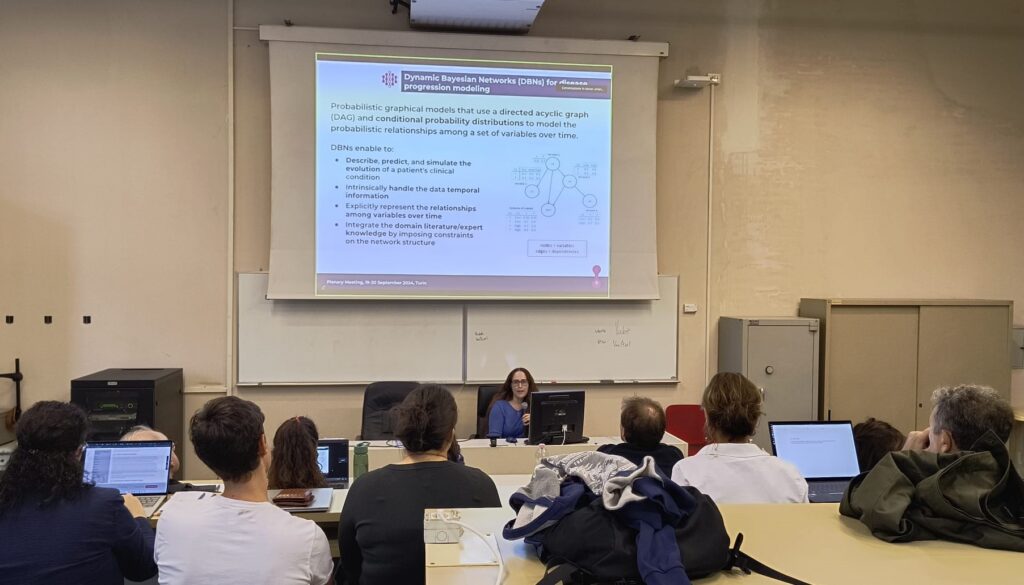
Improving ALS and MS Progression Prediction with Wearable and Environmental Data: Our Contribution to CLEF 2024
Last week, we had the pleasure of participating in the 15th Conference and Labs of the Evaluation Forum (CLEF), held from 9-12 September in Grenoble, France. As part of the iDPP Challenge, we presented our work titled “Using wearable and environmental data to improve the prediction of amyotrophic lateral sclerosis (ALS) and multiple sclerosis (MS) progression: an exploratory study” (E. Marinello, A. Guazzo, E. Longato, E. Tavazzi, I. Trescato, M. Vettoretti, B. Di Camillo), developed within the BRAINTEASER H2020 project. The paper, included in the CLEF 2024 Working Notes, can be accessed here: https://ceur-ws.org/Vol-3740/paper-125.pdf.
Our study focuses on leveraging sensor data to enhance predictive models for ALS and MS progression, with the aim of assisting clinicians in making more informed therapeutic decisions. We developed machine learning approaches to predict ALSFRS-R scores in ALS patients and relapses in MS patients using wearable and environmental data. The results were promising, demonstrating improved prediction accuracy when sensor data were incorporated.
Participating in the iDPPChallenge provided a great opportunity to share our findings on how data science can enhance clinical decision-making in neurodegenerative diseases
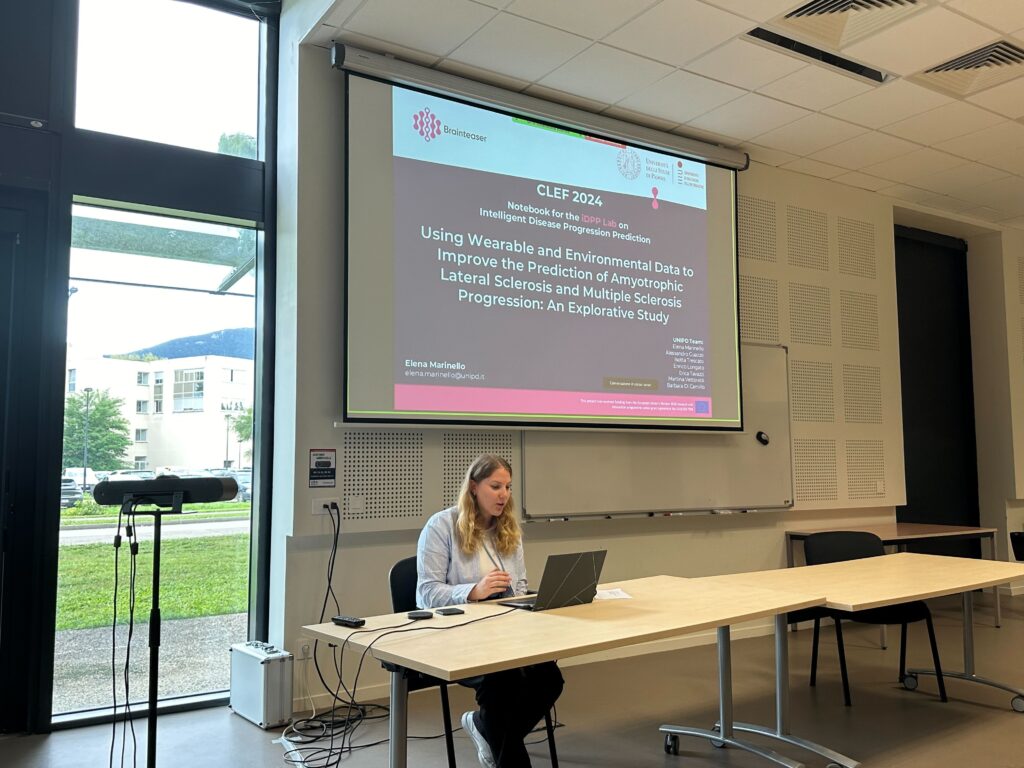
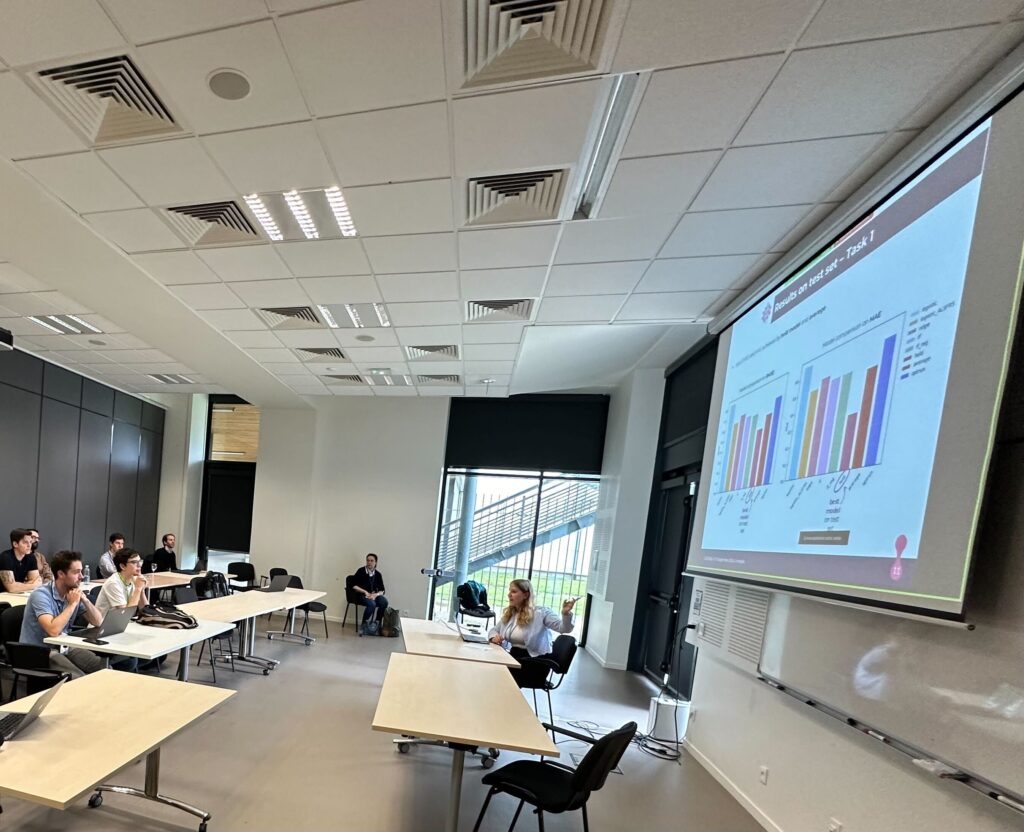
Birolo G, Bosoni P, Faggioli G, Aidos H, Bergamaschi R, Cavalla P, Chiò A, Dagliati A, de Carvalho M, Di Nunzio GM, Fariselli P, Garcia Dominguez JM, Gromicho M, Guazzo A, Longato E, Madeira S, Manera U, Marchesin S, Menotti L, Silvello G, Tavazzi EL, Tavazzi Er, Trescato I, Vettoretti M, Di Camillo B, Ferro N. Overview of iDPP@CLEF 2024: The Intelligent Disease Progression Prediction Challenge. In: Int Conf of the Cross-Language Ev Forum for Europ Lan. Cham: Springer Nat Switz, 2023.
Marinello E, Guazzo A, Longato E, Tavazzi E, Trescato I, Vettoretti M, Di Camillo B. Using Wearable and Environmental Data to Improve the Prediction of Amyotrophic Lateral Sclerosis and Multiple Sclerosis Progression: an Explorative Study. In: Working Notes of the Conf. and Labs of the Evaluation Forum (CLEF) 2024.
WP5 Progress Presented at the REDDIE Project Stakeholder Meeting in Madrid
On Sunday, 8th September 2024, the 2nd Stakeholder Meeting of the REDDIE project took place at the IFEMA Convention Centre in Madrid. During the event, our tenure-track researcher and PI, Martina Vettoretti, presented the activities related to Work Package 5 (WP5), Advanced Methodological Frameworks for Enhancing Clinical Trials with Real-World and Virtual Evidence, for which our group is the leader.
The presentation focused on the progress made in two key methodological tasks. The first is the enhancement of methodologies for conducting retrospective observational studies, where we have performed a systematic review to identify and evaluate available methods on a set of artificial datasets. This work aims to define guidelines for selecting appropriate methods in various contexts and develop a fully-automated analysis pipeline to improve reproducibility and scalability.
The second task involves advancing tools for building data-driven simulation models. These models are becoming increasingly important as the simulated data they can create provide a complementary perspective to real-world data and clinical trial data. Simulated data can be generated using computational models, such as dynamic Bayesian networks (DBNs), a technique in which our group has both methodological expertise and practical experience. Within the REDDIE project, we are advancing the use of DBNs to simulate long-term outcomes in patients with type 1 and type 2 diabetes, leveraging RWD sourced from national diabetes registries to build more accurate models.
These efforts will ultimately contribute to more personalised approaches in diabetes management, while also improving the scalability and robustness of the simulation models used in healthcare research.
We extend our gratitude to the organisers for a well-executed and insightful meeting, and for the valuable feedback received from key stakeholders, whose input is essential to the success of this project.

Sharing Our Research at CIBB 2024 in Benevento
These days our group is attending the 19th conference on Computational Intelligence Methods for Bioinformatics and Biostatistics (CIBB 2024) in Benevento, Italy.
We are proud to contribute to the event with the special session “Informatics research in bioinformatics: Contributions from the CINI-InfoLife network” co-organised and co-chaired by our researchers Giacomo Baruzzo and Mikele Milia, part of Young-InfoLife, and the following 5 oral presentations, most of them developed within the projects we are involved in (PNC/PNRR DARE initiative, H2020 BRAINTEASER project, Horizon Europe REDDIE project):
- “Comprehensive benchmarking of network inference methods for 16S rDNA-Seq data”, Piero Mariotto, Matteo Baldan, Barbara Di Camillo, and Giacomo Baruzzo
- “Comparing Propensity Score-Based Methods in Estimating the Treatment Effects: A Simulation Study“, Sara Poletto, Enrico Longato, Erica Tavazzi, and Martina Vettoretti
- “Effect of Clinical History on Predictive Model Performance for Renal Complications of Diabetes”, Davide Dei Cas, Barbara Di Camillo, Gian Paolo Fadini, Giovanni Sparacino and Enrico Longato
- “Exploring the Impact of Environmental Pollutants on Multiple Sclerosis Progression“, Elena Marinello, Erica Tavazzi, Enrico Longato, Pietro Bosoni, Arianna Dagliati, Mahin Vazifehdan, Riccardo Bellazzi, Isotta Trescato, Alessandro Guazzo, Martina Vettoretti, Eleonora Tavazzi, Lara Ahmad, Roberto Bergamaschi, Paola Cavalla, Umberto Manera, Adriano Chiò and Barbara Di Camillo
- “Network-Based Cross-Entropy Approach for Continuous Genotype-Phenotype Association Analysis”, Mikele Milia, Giacomo Baruzzo, and Barbara Di Camillo
We extend our sincere thanks to the conference organisers for facilitating this event and for providing us with the opportunity to present our research.
